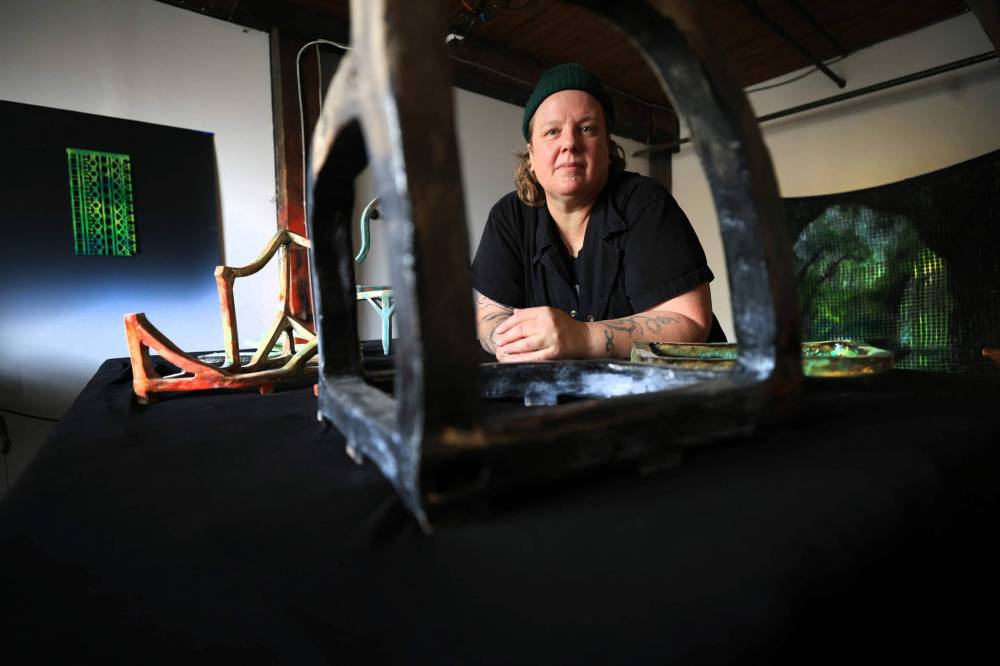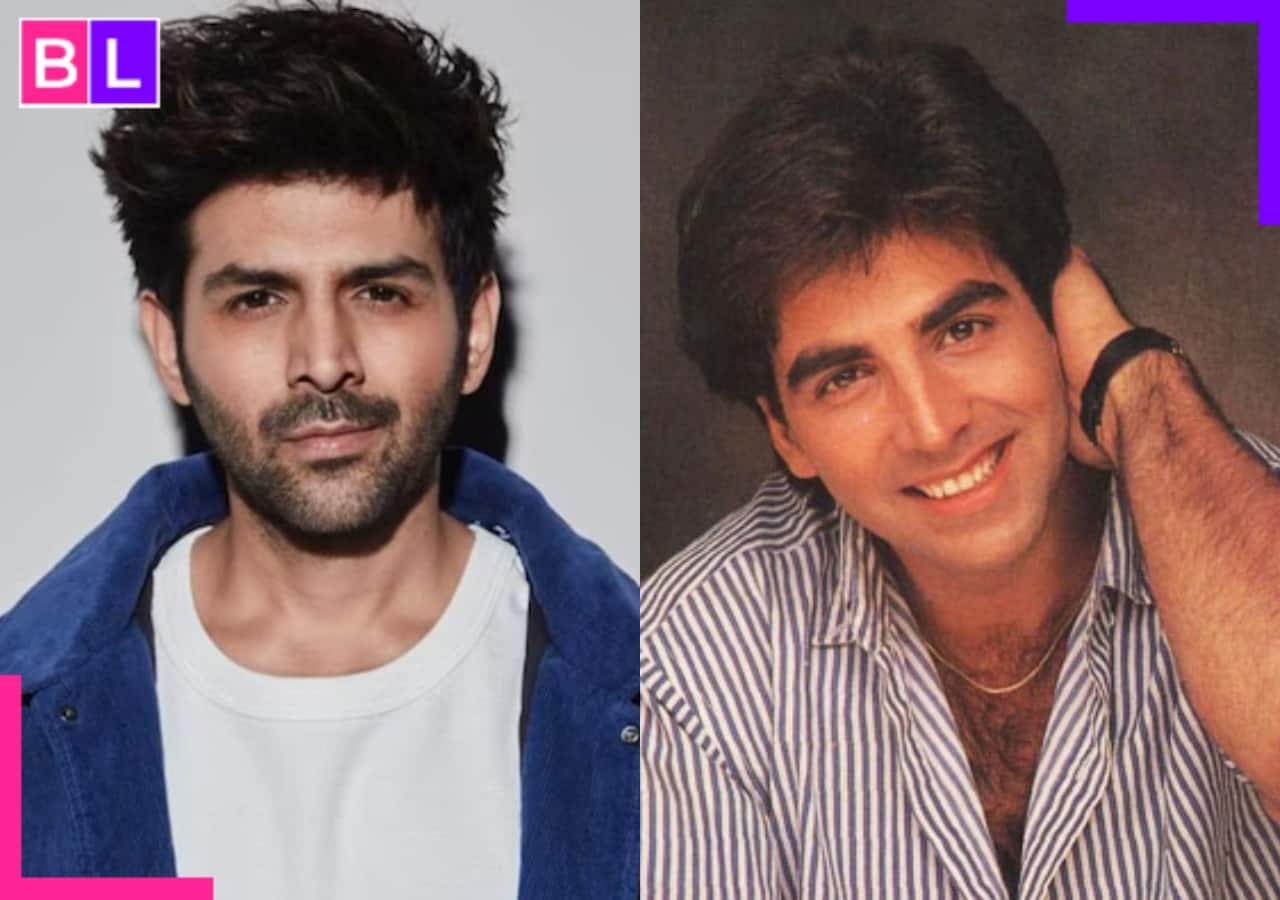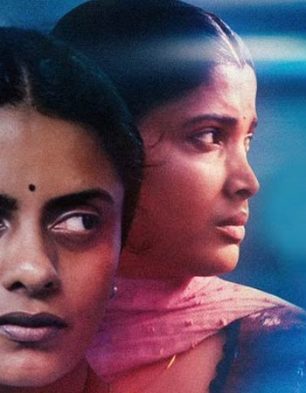
Are video games just an outlet for escapist fantasies? Or, like any good art, can they also confront with us with deeper meanings about ourselves and the world out there? Read this article for free: Already have an account? To continue reading, please subscribe: * Are video games just an outlet for escapist fantasies? Or, like any good art, can they also confront with us with deeper meanings about ourselves and the world out there? Read unlimited articles for free today: Already have an account? Are video games just an outlet for escapist fantasies? Or, like any good art, can they also confront with us with deeper meanings about ourselves and the world out there? The question is at the heart of an increasingly tired debate, and artist AO Roberts — a new creative voice in Manitoba’s small, lively video game industry — treats it as basically a false dilemma. Roberts is the guiding force behind . Part fantasy, part sci-fi, this is a game that, beneath its elegant 3D surfaces and survivalist narrative, is really itself about fantasy.
Ruth Bonneville / Free Press Local artist AO Roberts’ Plants Properties Equipment is part fantasy, part sci-fi and part survivalist narrative speaking to the disabled community. In particular, it’s about the complex role of fantasies — in video games, social theorizing, the subconscious — in bringing us closer to a future of our deliberate making, specifically for disabled communities. “Video games were the clear choice with which to create things that would be otherwise impossible,” says Roberts, who uses they/them pronouns, “and they provided an environment to dream about disability futures between worlds.
” If this sounds all rather self-referential and heady, these themes work mostly in the background, while the player is immersed in the game’s neat challenges and environments. Developed in collaboration with the Séance Collective and launched a couple weeks ago, sends the player on a quest through a lush, unknown planet. “The hospital has disappeared,” reads the game’s first prompt.
“Your doctors are nowhere to be found. You need to find care.” The player explores beautifully rendered alpine meadows, grottos and forests, wildcrafting herbal medicines and solving puzzles.
Roberts, a sculptor and sound artist whose first video game is , knows to honour some of their new medium’s tropes before getting experimental. The game’s freshness comes with its finely crafted, often surreal details that point to the game’s deeper subconscious. There’s the “Get Well” balloons, flowers and stuffed animals that mysteriously litter this foreign planet and that don’t seem very helpful with solving the game’s challenges.
A chronically ill or disabled person doesn’t need to be told to get better. What the player is really after are the “monoliths,” chair-like objects based on real-life sculptures Roberts built. Although — spoiler alert — the player should see that these represent, not a simple cure or happy ending, but something more ambiguous.
Ruth Bonneville / Free Press Roberts built ceramic sculptures that were then digitized to use as pieces within the game Plants Properties Equipment. The game’s ending isn’t triumphant. The player’s choice between different monoliths stands for a choice between what Roberts calls “future medical cosmologies,” that is, different possible futures for the way we conceptualize and accommodate disabled people, without the hope of simply “solving” disability.
Again, this may sound rather cerebral for a game that takes about 30 minutes to play, but Roberts has designed a visual art experience that works as a game regardless of whether you’re aware of the theoretical footnotes that could easily follow. Indeed, there’s much in the game that, at first glance, feels like pleasant escapism. Players jump-float through an open world with moon-like gravity.
It’s a classic dream scenario that takes on added subtext when we consider the disabled community Roberts considers a primary target audience. The game’s soundtrack, designed by deaf and disabled composers, and puzzles do what they’re supposed to do: make the player happily forget the world around them. But like a psychoanalyst, Roberts gropes for deeper meanings in this experience of fantasy.
“There’s a meditative tone to the space, but it comes with the task of finding medical care,” says Roberts, whose puzzles often resemble the labyrinthian challenges of navigating what they describe as the “medical industrial complex.” “So, there are contradictions built into the world that might encourage pause or reflection more so than escape.” Winnipeg Jets Game Days On Winnipeg Jets game days, hockey writers Mike McIntyre and Ken Wiebe send news, notes and quotes from the morning skate, as well as injury updates and lineup decisions.
Arrives a few hours prior to puck drop. For a first-time video game developer, Roberts is obviously working with ambitious ideas. So what’s next? SUPPLIED A scene from local artist AO Roberts’ video game Plants Properties Equipment “I have game developers Séance Collective to thank for bringing my vision to reality .
.. There’s so much creative potential with games that I’ve barely scratched the surface of, so I’m sure I’ll spend more time experimenting and advocating for accessibility,” they say.
“I’m interested in projects that help break down the divisions we’ve made between games and art, finding new ways to show games within traditional gallery spaces and bringing artists into the game space.” a downloadable world for Windows, is available at wfp.to/plants.
The soundtrack is available on Bandcamp at wfp.to/plantsalbum; partial proceeds from album sales benefit Arts Accessibility Network Manitoba. conrad.
[email protected] Conrad Sweatman is an arts reporter and feature writer.
Before joining the full-time in 2024, he worked in the U.K. and Canadian cultural sectors, freelanced for outlets including , and .
Our newsroom depends on a growing audience of readers to power our journalism. If you are not a paid reader, please consider . Our newsroom depends on its audience of readers to power our journalism.
Thank you for your support. Conrad Sweatman is an arts reporter and feature writer. Before joining the full-time in 2024, he worked in the U.
K. and Canadian cultural sectors, freelanced for outlets including , and . Our newsroom depends on a growing audience of readers to power our journalism.
If you are not a paid reader, please consider . Our newsroom depends on its audience of readers to power our journalism. Thank you for your support.
Advertisement Advertisement.














